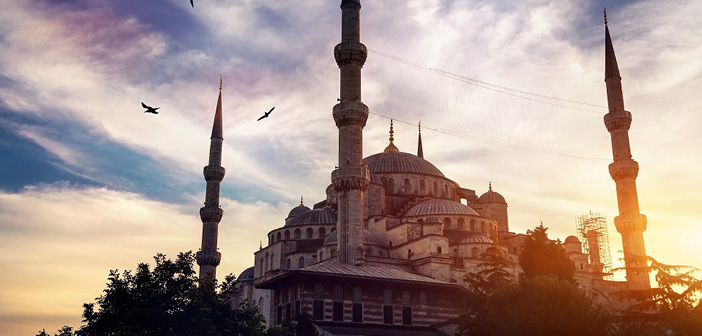What is azimah? What is rukhsah?
Azimah means, “being determined”, and Rukhsah means “permission for doing the reverse of the command in a time of hardship.” Azimah is the opposite of rukhsah.
Azimah is the essential guideline for a Muslim. Because every obligation bears some sort of hardship. Hardship at the minimal level is bearable and should be endured. However if the hardship associated with a ruling or obligation presents a risk or unbearable duress, then there is permission for ease.
Rukhsah refers to permission or concession. For example; fasting is an azimah ruling. However sick people or travellers are not required to fast due to the difficulties they face, and may make up for these days once they are in normal circumstances. For a person who risks dying of hunger or thirst, he or she may consume from something that is normally haram (under the azimah ruling) such as swine or alcohol to survive, until they no longer carry the risk of dying.
There are many rukhsahs offered for obligations such as ablution or prayer. This is because Islam is not a religion of difficulty; in fact Allah wills the welfare of his servants . For example; during a journey, when no water is available or the weather conditions hinder one from obtaining water, the traveller may use earth for ablution (tayammum) rather than perform wudu’ with water.
We may come across Rukhsah in two forms:
a) Permission to Commit Haram
In a time of necessity or emergency, it is permissible to commit haram, in fact it may even be wajib to do so. In a hard situation where rukhsah exists, a person may choose between applying azimah or rukhsah . When threatened with death, a person may hide his faith and pronounce words of blasphemy to save his own life. However if a person resists, does not give up and as a result loses his life, he is considered a martyr (shaheed).
b) Rukhsah to Forsake a Wajib Act
When a mukallaf faces difficulty when performing a wajib obligation, he or she is offered a rukhsah to ease his or her circumstance. For example; the ill may perform prayer seated, or delay the fasting, shortening of prayers for travellers, wiping over a bandage etc are all ways in which Islam offers convenience for Mukallafeen who are in need of it.
Source: Fiqh1 (According To The Maliki School Of Islamic Law), Erkam Publications





